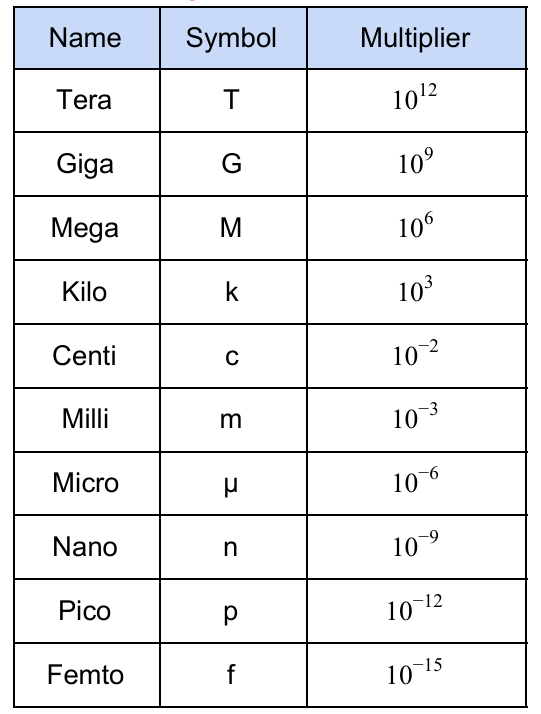Physics - Uncertainties & Measurements
1/26
Earn XP
Description and Tags
...and errors
Name | Mastery | Learn | Test | Matching | Spaced | Call with Kai |
|---|
No analytics yet
Send a link to your students to track their progress
27 Terms
What are the SI units?
Fundamental units in Physics.
Kg (Mass)
m (Distance)
s (time)
mol (Amounts or substance)
K (Temperature)
A (Electric Current)
How can we find SI units of something?
Derive from equation.
Perform the operations between the components that make up the equation with the units instead.
e.g. F = ma
m (Kg) | a (ms-2) → F (Kgms-2)
Give prefix values.

What are Random errors? How to reduce them?
Errors that affects precision + Can’t get rid of them.
At least 3 repeats and calculate mean, also enables anomalies to be identified.
Use computers, data loggers, cameras to reduce human error and enable smaller intervals
Appropriate equipment. e.g. micrometre has higher resolution than a ruler.
What are S____ errors? How to reduce?
Systematic errors →
Affect accuracy
Occurs due to apparatus or faults in the experimental method.
e.g. balance is scaled properly to 0. → Zero error
Reading scale at different angle → Parallax error.
Calibrate apparatus by measuring known value.
In radiation experiments, measure background radiation before experiment and then correct results based on background radiation.
Read meniscus (to reduce parallax) + use control variables.
What is precision?
Precise measurements are consistent, they fluctuate slightly about a mean value - this doesn’t indicate the value is accurate
What is accuracy?
A measurement close to the true value is accurate
What is resolution?
The smallest change in the quantity being measured that gives a recognisable change in reading
What is reprdocuibility?
If the experiment is redone by a different person or with different techniques and equipment and the same results are found, it is reproducible
What is repeatability?
If the original experimenter can redo the experiment with the same equipment and method then get the same results it is repeatable
What is uncertainty?
The uncertainty of a measurement is the bounds in which the accurate value can be expected to lie e.g. 20°C ± 2°C , the true value could be within 18-22°C
What are the types of uncertainty? Give definitions for each.
Absolute Uncertainty : uncertainty given as a fixed quantity e.g. 7 ± 0.6 V
Fractional Uncertainty: uncertainty as a fraction of the measurement e.g. 7 ± 3/35 V
Percentage Uncertainty: ± 3 35 uncertainty as a percentage of the measurement e.g. 7 ± 8.6% V
How can we reduce P_____ or F_____ Uncertainty?
Percentage or fractional uncertainty can be reduced by measuring larger quantities.
True or False: Readings and measurements are the same.
False;
Readings → One value is found
Uncertainty: ± half smallest division
Measurement → Difference between two readings found.
Uncertainty: at least ± 1 smallest division
What is the uncertainty for a digital reading?
Uncertainty is either given or…
± the smallest division
What affects uncertainty?
Resolution of instruments.
How do you write out uncertainty for repeated data?

What are methods of reducing uncertainty?
Fixing one end of a ruler. (This will mean there is only uncertainty in one value)
Measuring multiple times (e.g.6.2 ± 0.1 s, the time for 1 swing is 0.62 ± 0.01s (the uncertainty is also divided by 10).)
What do we need to remember when writing uncertainties with data?
Uncertainty must be to same no. of decimal places as data.
Combining uncertainities?
Adding/subtracting data: Add Absolute uncertainties
Multiplying/dividing data: Add percentage uncertainties
Raising data to a power: Raise percentage uncertainty to power
How do we show uncertainties in graphs?
Error bars.
True or false: Line of best fit should go through at least a few of the error bars on a graph.
False; Should go through ALL of them (excluding anomalous points)
How can we find uncertainty of the gradient of a graph?
1 - Draw steeps and shallowest lines of worst fit (must go through all error bars).
2 - Calculate gradients of best and worst fit.
3 - Uncertainty is difference between best and worst gradients.
Percentage uncertainty for a graph? What is this used for?
Used for when Y-intercepts are the same.

What is percentage uncertainty for when Y-Intercepts are different?

How can we use gradients to represent percentage uncertainty?

Why do we make estimation and what is it usually in?
To ensure answer is reasonable and to make comparisons
Usually in terms of order of magnitude.